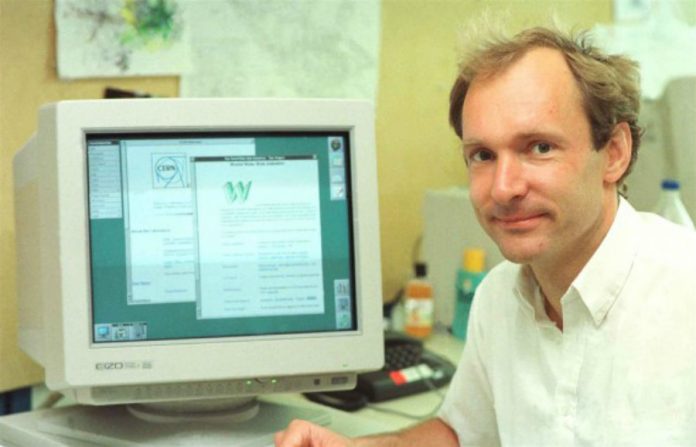
This Tuesday 23 August is the celebration of the Internet Day. On this date, back in 1991, a British researcher opened the World Wide Web to the public. A quarter century later, the Internet has pushed humankind into the digital era.
Responsible for the WWW is computer scientist Tim Berners-Lee, who was working at Switzerland’s CERN facilities at the time. His child now wonders him not only because of the possibilities but because of its sheer size: There are currently over one 1.3 online websites and 4.7 billion web pages. Both numbers keep on growing every day, every second.
All the while there are over 3.4 billion people on the Internet. It’s safe to say that half the population in the world are feeling the power of what may be the biggest inventions of the century. And before the WWW was flooded with all kinds of content, services, and cats, this was the first page ever published.

29th October is the celebration of the Internet Day
The World Wide Web and the Internet are not synonyms. The Internet refers to the network that carries information to any node around the world, and the so-called “Internet of Things” is probably growing beyond Lee’s imagination. On 29th October 1969 US researchers connected the Internet for the very first time.
The US Department of Defense endorsed the creation of packet systems in the 1960s, including the development of ARPANET, the initial network. Professor Leonard Kleinrock’s laboratory at the University of California, Los Angeles launched the prime message via ARPANET to the second node at Stanford Research Institute.
Eventually, ARPANET became the Internet protocol suite (TCP/IP) in 1982, funded by DARPA (Defense Advanced Research Projects). TCP/IP provides the end to end communication specifying how the data should be transmitted, addressed, packetized, routed and received.
The birthday of the World Wide Web
In the 80’s, the research team at CERN started to link hypertext documents to an information system accessible from any point on the network. In 1989, Berners-Lee proposed the idea of “a universal linked information system” to help scientist collaborate with each other. It would be the combination of the internet with the HyperText Transfer Protocol (HTML) he designed in 1990.
Finally, on August 23, CERN invited outsiders to join the web, and in April 1993, the lab made its research and software available to the public. It was a decision crucial to the Web’s existence. “Without this commitment, the enormous individual and corporate investment in Web technology simply would never have happened, and we wouldn’t have the Web today,” said Berners-Lee on April 2003.
http://t.co/D9pwMXuZOa recently passed a billion websites by their count….
— Tim Berners-Lee (@timberners_lee) September 16, 2014
Since then, the Internet and the W3 have had an impact on technology, economy, commerce, culture and even politics. Internauts today may find a near-instant communication system, online information, commerce, entertainment, social networking and an overall space for interactivity and free speech, even when the web lures extreme groups and illegal business.
Source: CNET










